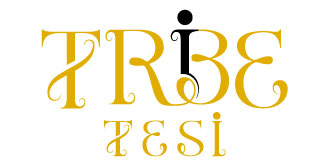Accountability isn’t always easy, but it’s necessary. It’s about owning up to the choices we make and the impact they have on ourselves, others, and the spaces we occupy. Yet too often, people avoid it. They deflect, justify, or pretend they’ve done nothing wrong, as though that erases the hurt caused.
Hurt doesn’t exist in isolation. When trust is broken, or boundaries are crossed, it doesn’t happen in a vacuum. There are always signs, always moments where someone could’ve stopped and asked, “Am I doing the right thing here?” Ignoring those signs, whether intentionally or not, is a choice. And choices come with consequences.
We cling to what suits us at the time, even if it means turning a blind eye to things that don’t add up.
Sometimes, it’s easier to ignore the red flags because asking the tough questions feels inconvenient. The truth is, pleasure and short-term gain often cloud our judgment. We might see evidence staring us in the face, but we choose to overlook it because it disrupts the narrative we want to believe. We cling to what suits us at the time, even if it means turning a blind eye to things that don’t add up. But ignoring what’s right in front of us doesn’t make it any less real – it just makes the reckoning harder when it inevitably comes.
It’s easy to point fingers and claim someone else is to blame. But let’s be real, accountability isn’t about what the other person did or didn’t do. It’s about acknowledging your role, even when it’s uncomfortable. It’s saying, “Yes, I played a part in this,” without adding “but” to the sentence. None of us are perfect, which means we’ve all made decisions that, looking back, we’d handle differently. But intent doesn’t erase impact. Just because you didn’t mean to hurt someone doesn’t mean they didn’t feel the sting.
Have your actions or words left someone feeling less than they deserve? If they have, what can you do about it now? Accountability is as much about moving forward as it is about owning the past. It’s about learning, growing, and being better – not for appearances, but because it’s the right thing to do. This isn’t about dwelling on mistakes or wearing guilt like a badge. It’s about honesty. It’s about recognising when we’ve been the problem and committing to do better. It’s about asking ourselves the hard questions: Did I ignore the obvious? Did I justify what I shouldn’t have? Did I contribute to someone else’s hurt?
Healing, for everyone involved starts with accountability. So, let’s stop excusing bad behaviour, whether it’s our own or someone else’s. Let’s stop pretending ignorance absolves us of responsibility. And let’s start asking ourselves, “What kind of person do I want to be moving forward?”
No one gets it right all the time, but we owe it to ourselves and to those we’ve affected – to acknowledge the role we’ve played and take steps toward doing better. Because that’s where real change begins.


4 Comments
Wow! I don’t think I’ve ever read anything that made sense about the roles we play in hurting others – directly or indirectly as is highlighted in this blog. Very poignant!
Not sure how I missed these comments.. Sorry! Thank you for reading Gemma and for taking the time to leave a comment. Hope the piece plays a part in your life, one way or another.
I’ve never understood those who point fingers when they too played a part in deception or caused pain towards others. However much they might claim to have been misled, we are adults and at some point you would question yourself or the situation that you see unfolding! Wouldn’t you? I would.
I would do, too – but I guess if the current situation suits whoever is in it, then that often leads to them pointing fingers and acting like they don’t know what is happening. or what damage they contributed to.